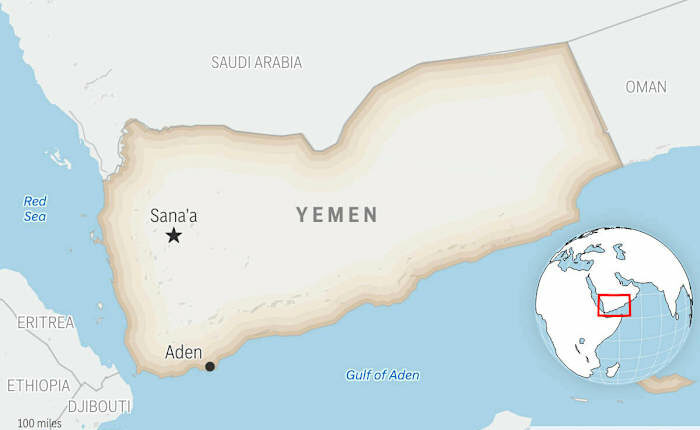Share this @internewscast.com

DUBAI – Experts reported Tuesday that a ship likely severed cables in the Red Sea, impacting internet access across Africa, Asia, and the Middle East. This incident highlights the vulnerability of these lines over a year after a similar disruption.
The International Cable Protection Committee explained to The Associated Press that 15 submarine cables run through the narrow Bab el-Mandeb Strait, the southern entrance of the Red Sea dividing East Africa from the Arabian Peninsula.
During the weekend, multiple authorities identified the affected cables, including the South East Asia–Middle East–Western Europe 4, the India-Middle East-Western Europe, and the FALCON GCX cables. By Tuesday, Doug Madory, director of internet analysis at Kentik, mentioned that the Europe India Gateway cable was added to this list.
Initial reports pointed to the coast off Jeddah, Saudi Arabia, as the site of the cut, though neither kingdom authorities nor the cable companies have confirmed this. The incident disrupted internet services across Asia and the Middle East.
John Wrottesley, the committee’s operations manager, told the AP, “Early independent analysis indicates that the probable cause of damage is commercial shipping activity in the region.” He added that about 30% of annual cable incidents, leading to around 60 faults, result from dragged anchors.
Madory explained to the AP that the presumed cause was a commercial vessel dropping its anchor, dragging it across four cables and severing them. Cables in the Red Sea often lie at shallow depths, making them susceptible to damage from anchor drags.
Undersea cables are one of the backbones of the internet, along with satellite connections and land-based cables. Typically, internet service providers have multiple access points and reroute traffic if one fails, though it can slow down access for users.
However, rerouting traffic can cause latency, or lag, for internet users. Madory said it appeared at least 10 nations in Africa, Asia and the Middle East had been affected by the cable cut. Among those nations were India, Pakistan and the United Arab Emirates.
Cable security also has been a concern amid attacks by Yemen’s Houthi rebels on ships over the Israel-Hamas war in the Gaza Strip. In early 2024, Yemen’s internationally recognized government in exile alleged that the Houthis planned to attack undersea cables. Several later were cut, possibly by a ship attacked by the Houthis dragging its anchor, but the rebels denied being responsible.
Copyright 2025 The Associated Press. All rights reserved. This material may not be published, broadcast, rewritten or redistributed without permission.











